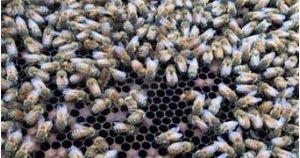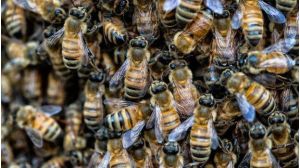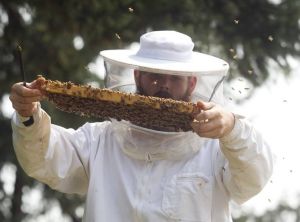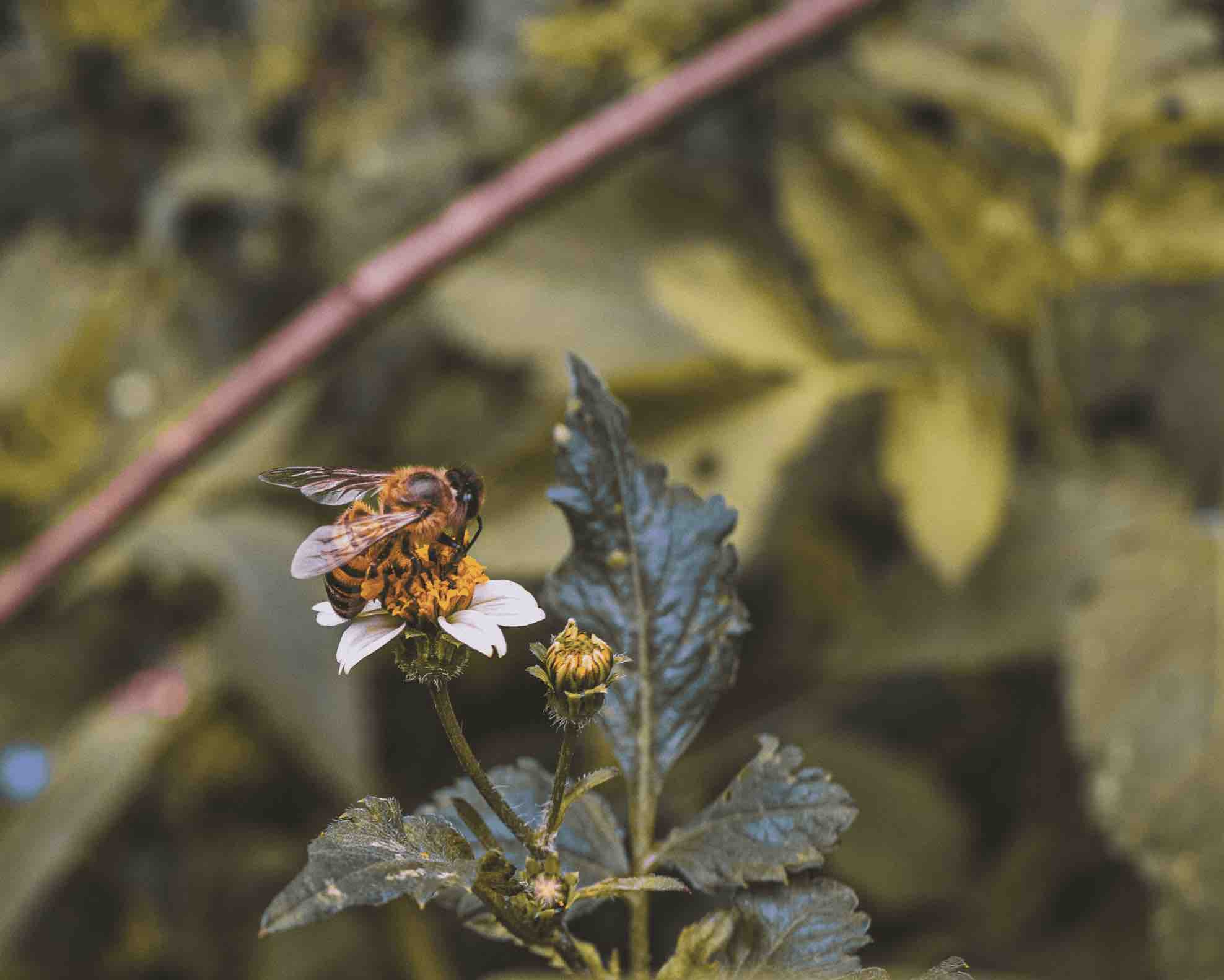The bee is a special creature: of great importance for the conservation of biodiversity and our food. But why does the bee play such an important role and what can you do to help it? Nienke Vennik – editor for Slow Food Netherlands – interviewed a local beekeeper and found out.
I recently became a lucky girl as I have my own garden now. While I was sitting in my garden on a sunny day the other day, my eye caught a special bee. And on closer inspection, it turned out to be not one, but much more. They were all digging into my newly excavated soil. Curious as I am, I took a picture and sent it to my local beekeeper with two questions: what kind of bee is this and what can I do to help him?
What kind of bee is this?
The honey bee is the most famous kind of bee. They live in large tribes and are kept by beekeepers. There are also many other wild, solitary bee species in the Netherlands. These wild bees are not attached to a hive, but swarm around and live, for example, in the ground or in a hollow of a plant. The area where the wild bee looks for food is often not very large, while honey bees can fly a few kilometers for a flower or plant. It’s wild bees that need our help. The bees I came across in my garden turned out to be mason bees. A name this bee owes to the habit of depositing the eggs in a cavity that is then bricked up.
Why are bees important?
This masonry bee is one of more than 350 different species of bees that occur in the Netherlands. About half of them are threatened with extinction. Bear in mind that about eighty percent of the plants we eat from depend on bees for pollination. Without bees, coffee, chocolate and many fruits and vegetables will no longer be available. Bees are incredibly important to us as humans and to the biodiversity in our nature. We must not let them become extinct. Fortunately, we can help the wild bee!
What can I do to help the bee?
Therefore, I would like to return to the second question I asked the beekeeper: what can I do to help the bees? His answer was clear. You can help the bee with flowers and insect hotels. This can be done in a garden as well as on a balcony. Choose a mix of many different flowers so that many different species of bees can enjoy them. Do you have a large garden and would you like to go a step further? Many species of bees nest in the ground. You can help them by making a sandpit in the garden. Other bees love dead wood. Do you have a corner to spare in your garden? Leave some dead wood for them or a pile of leaves for shelter. That will make other insects very happy too. Bees are essential for our biodiversity and for our food. Therefore, on this Earth Day, plant an extra flower in your garden or on your balcony, to give the (wild) bees a helping hand!
Do you want to know what Slow Food does to help (wild) bees? Take a look at www.slowfood.com/save-bees-farmers and sign the petition!
This blog is written by Nienke Vennik. Nienke is committed to sustainability and nature in different ways: scouting, politics and work. Nienke is a sustainability communication officer for the municipality of Beesel and works voluntarily for the editorial staff of Slow Food Netherlands. Click Here 28/4/20





